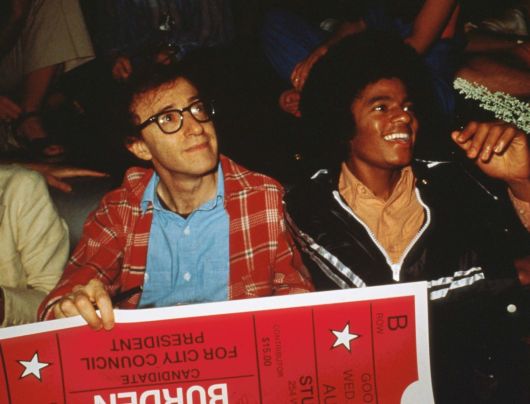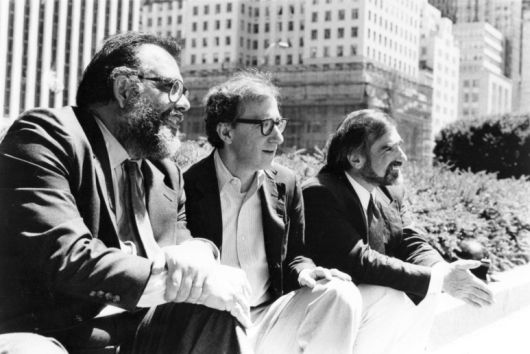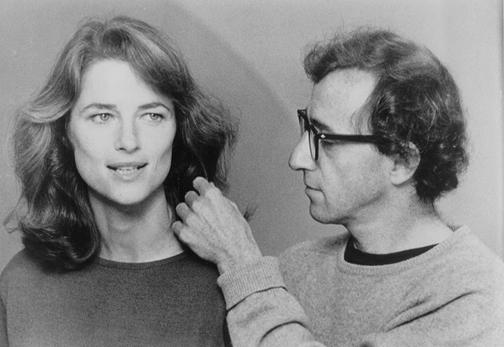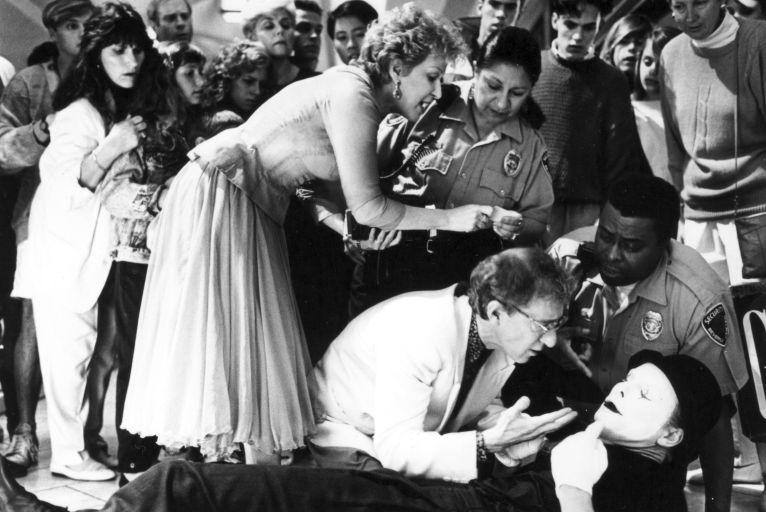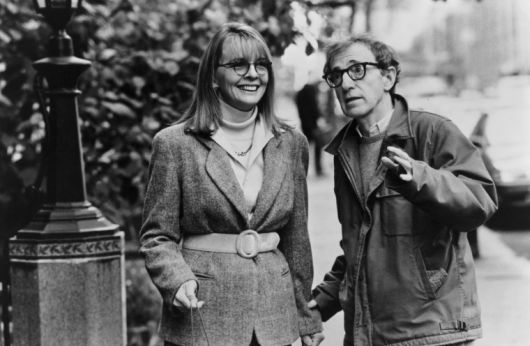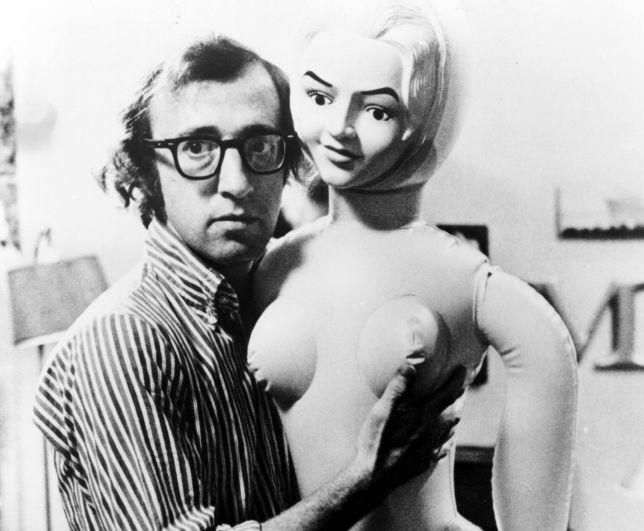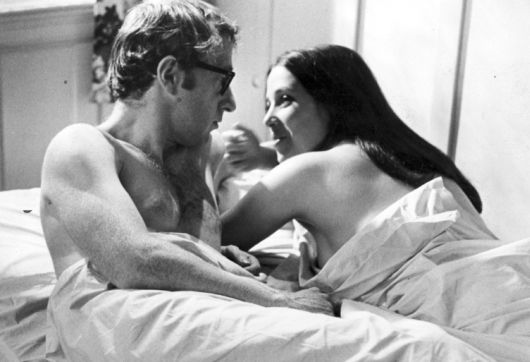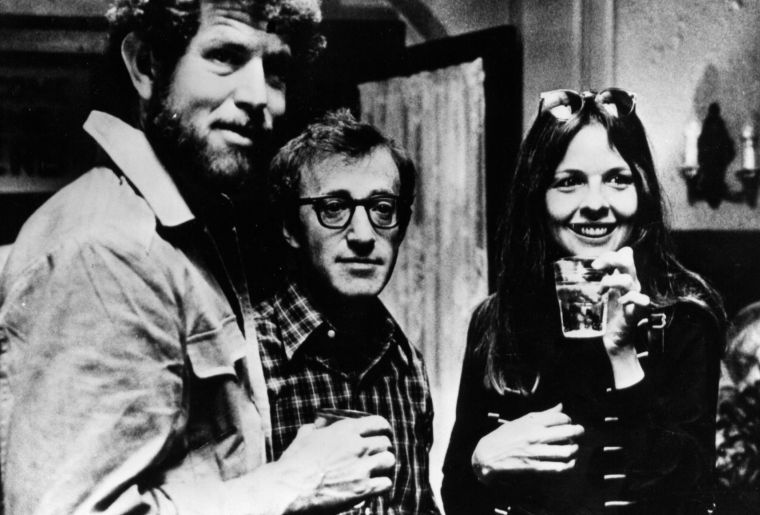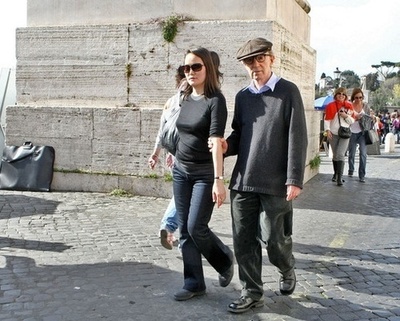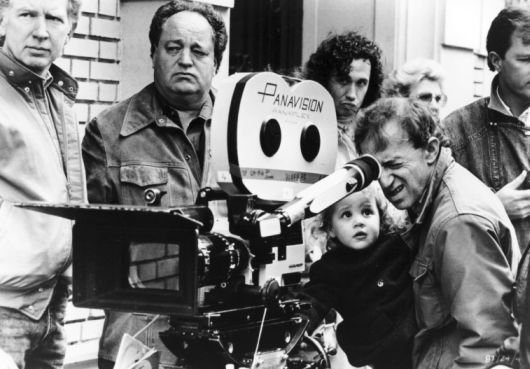 NEW YORK
NEW YORK In Which We Visit The Best Bookstores In New York
 Thursday, May 5, 2011 at 11:38AM
Thursday, May 5, 2011 at 11:38AM This is the first part of a two part series. You can find the second part here.

Off the Shelf
by BARBARA GALLETLY
All I ever really wanted was to read books and make more. So I came to New York in the fall of 2005, fresh out of college, to work in publishing. It took me some experience, time, work, therapy, and exploration to understand where I fit in. Also, shopping. My story, in bookstores:
Book Culture
I lived for six months on the Upper West Side, four blocks from Labyrinth, where I used to stand in the stacks and feel the weight of the knowledge I lacked. College had not gotten me where it seemed to have gotten everyone else — nobody appeared nearly as bewildered as I was. And I felt tremendously small, uninformed about life, not to mention sad and lonely. This place did not help. Every course offered at Columbia was neatly packed within — it didn't just seem that way.
I bought a bag despite the fact that I really had nothing to do with the place. I was not devastated when it changed ownership and its name to Book Culture. I had also moved on. This is a good place to go for anything that could be of academic interest. Also, if you want to find someone studying humanities at Columbia to date. Neither was quite compelling to me at the time.

Housing Works
I interviewed for many jobs I did not get, most memorably with a prodigy editor who had started as an event planner at the Housing Works bookstore in Soho. They mostly hosted big parties at the time, weddings of editors (who usually marry one another) and private book parties thrown by publishers, when they still did that kind of thing frequently. Anyway, that was how Prodigy Editor got started and when he suggested more books, The Best of Everything by Rona Jaffe and Michael Korda's famed memoir of his life as an editor I made the trip to his old employer, where I found the titles easily. As I was wont to do, I soon fell in love with the world these books conjured, a phantom New York that has always been ten or fifty years old.
Housing Works is a beautiful space to read and to look for books donated famously by the famous writers of downtown Manhattan — a dwindling breed. An excellent selection of titles, beautiful editions of particularly special books, a copy of a book you're interested in reading. It is old school in a charming number of ways. If you have to go to SoHo for a coffee, meet at Housing Works because there's probably a place to sit. Also go there if you want to contribute to their program for homeless people fighting HIV.
Not long after my little love affair began I orated my way into a job assisting one of the most experienced and awesome book agents still standing. It was a dream to be working with real literature that I had studied in college, professional writers and translators, and to have my own office full of windows overlooking 57th Street, shelves of books I wanted to read. I was a book girl, going to be a really successful and ethical agent because I just loved books the most, literature over money. On the other hand, I got to wear blouses and answer the phone with someone else's name. Suffered lots of hangovers.
The Strand
I sometimes tell people that I refuse to go to the Strand Bookstore. I never find what I am looking for, and I hate to check my bag almost as much as I hate being chased by a security guard when I "forget" to check my bag. And it's crowded. But still, it fills a niche. It just has so many cheap books — it's like the Strand will sell literally anything. I think this works okay because the books stay cheap, the store is convenient, and it has tourist devotees still clamoring for The Catcher in the Rye.
It was also my gateway drug. I started going when I worked, briefly, at a textbook publisher nearby, just to see what was up. Of course I continued to go. The Strand might have anything and it's fun to check on what they do have, what is out of stock.
The Strand's discounted new books still always strike me as a little off but they provoke me enough that I remember I'm a person with convictions, opinions. For example, I love to read epic poems, so when I saw Margaret Atwood's The Penelopiad at a discount on a table up front I went for it. So dull and unfortunate, it is the only book I can remember returning. On the upside, I didn't mind asking for my money back from the Strand.
Barnes & Noble, Union Square
This is the place I've seen Claire Messud, T.C. Boyle, and Jonathan Franzen give readings to tightly packed crowds. These are like going to concerts you'd otherwise pay for, for free. The catch is that you have to stand in the back in very high heels. It's uncomfortable and worth it.
All other times it is a nice place to be anonymous, since you won't see anyone you know there. Good for a cry before you get on the subway, where you would feel slightly less anonymous. Also, a youth hostel.
Walk into Borders or Barnes & Noble, and you can figure out what the majority of people in this country are reading. They will have some good and some uninformed staff and a ton of books, but they also offer a bunch of options that appear to many to be redundant or stale. They simply aren't big enough to compete with the internet and make everyone happy, thanks to the infinite long tail legacy of book publishing. Their fault is that they tried. It worked for a while but the failure of "big box" bookstores is now logical. If you don't like Amazon you can now go to Walmart or Sam's Club for a similar, cheaper experience, or to a small local store. I don't think this is really a huge deal in the long run because let's face it: of course.
A more important issue, one of many problems with the big and sluggish book publishers that still flood Barnes & Noble with inventory, is that they are looking for ways to keep making money on books without thinking very hard about what books can really do for us or why, how to make them more important and to remind us that we invest in our own good when we invest in them. Instead they tend to think about how the manuscript they're offered is more or less like Three Cups of Tea meets Dewey the Library Cat — the important trends to pursue.
Yes, books still make money. But barring Harry Potter, figures don't grow from year-to-year like they used to and the enormous corporations that own publishers are not okay with the trend. So, as people do, publishers throw money at the problem and escalate the Crap Situation. Even Billy Joel knows his (expensively purchased) manuscript just shouldn't be published, while on the other hand it seems there have been discussions and panels about the death of the book at every publishing conference I've attended.
This exacerbates major publishers' inabilities to maintain identifiable identities (they're called The Big Six and really, their offerings are indistinguishable); causes a certain amount of difficulty in navigating their output, even if it's all you do; highlights the fact that even if you do find someone whose opinions you can trust (there are multitudes you may rely on) they may suggest something that is not easily at hand. I'm talking about the unmitigated flood of shit into our communal cultural archive, if I can even use those words, and the failure, on many levels, of publishers to act as cultural curators and to help readers sift through the morass of crap they produce.
Such a loss of identity and purpose, or the broadening of such things until their boundaries disappear, means publishers fail to offer helpful hints about what you might want, or what you might need based on your previous experiences. One publisher (okay, a smaller independent one, which makes it more sad) is known for Sudoku books and translations of literary fiction from Russian, but you might not be interested in both. The differences can be less superficially obvious too, trust me. And yes, there are exceptions (for example, FSG most of the time, an imprint like Twelve).
An author also proves unreliable: he moves from imprint to imprint, publisher to publisher, according to his sales figures or where his editor finds new work. Maybe the same author falls into decline in terms of quality as he becomes more popular (Salman Rushdie? Gasp!). You love Gary Shteyngart and would trust his advice, but you don't know why he has blurbed 8,000 books since you can't possibly read that many. You might not notice right away, or have good luck, but you will eventually become frustrated.
Lisa Pearson of Siglo Press pointed out that this leaves some space in the market for quality small independent publishers to curate purposeful and interesting lists of books, and thankfully there are a few potential Barney Rossets and people like the Borchardts out there now. But as William Gass puts it in "Culture, Self, and Society" (thank you Mr. Gass): "A culture morally and functionally fails which does not let its crazies, its artists and its saints, its scientists and politicians, claim, on occasion, a higher law than its own congresses can pass, traditions permit, or conscience conceive." Siglio and Other Press and Graywolf and Ugly Duckling are working hard, but we aren't exactly all doing our parts quite yet.

At the time I wasn't totally aware of the ways I was affected by my little world. The excellence of the work surrounding me, the boring routines it necessitated: I had begun to blur my boring daily work with its significance, at once expecting all books to be fantastic literature and thrummed down by requests for checks that were overdue, options clauses and e-book clauses, overlapping contracts and delivery dates. Publication of Beckett and Yourcenar and their forbears and philosophy and poetry became peripheral, abstract motivations, which was tremendously disillusioning.
But I also did things I loved to do: I read and read, but can't tell you what or why. I edited, learned names and roles. Reading Publishers Weekly to see who came up where was like reading a written description of Pop-a-Mole. Then it was really hard to sell anything, really even to find something I wanted to sell. I felt myself to be so small a cog. Worse, I was out of touch with what was going to happen. Declining sales plummeted. The oversized publishers became more gigantic, merging into even bigger companies that competed to lose millions of dollars on Keith Richards. Books about disabled pets living in libraries or saving their owners took over. Not that this was new, but it was newly killing my passion.
At a loss as to how to wage and win my own battle, I tried hard to refocus my reading, on submissions, or selling challenging books. The millions of them. I didn't read anything that had actually been published yet for months and months, and read a lot of terrible and wonderful things I could never sell. In really low moments of desperation I bought stacks of literary journals, and though I pored over them I retained nothing, thought too often about something from the Talk of the Town or who wrote it , and primarily read Jezebel while I was at my desk. I interviewed for editorial jobs worse than my own, and felt angry that I couldn't find something more effective to do, to feel more important or do more exciting work. And then I came back to the bookstore for inspiration — thank god it was expecting me.

St. Marks Bookshop
St. Marks Bookshop is the place to go if you have to be in the East Village, also a place to learn about something to teach yourself if you haven't been to graduate school in the humanities. The fairly small collection at St. Marks seems designed to draw a browser to essays, to French philosophers and criticism of literature or art. Very nice. I can't say I ever noticed any narrative-based work in there unless it's Sebald. They have a wonderful, tidy collection of journals and magazines that aren't always easy to find, even in New York. I don't know if you'd agree with me, but this store reminds me of like the last video store. A bunch of intellectual fellows with smart but very particular taste. Which is, after all, probably the most important thing to acknowledge.

McNally Jackson
Soho happens also to be home to another fantastic bookstore. McNally Jackson is a destination in itself, and since opening in 2004 has become, more and more, an exciting place for books. It's not just a beautiful space, or a warm one (it is both). It demonstrates an uncannily good sense of what's good. Amazingly, you can also now print books on demand at the store. In a recent interview Sarah McNally gave to Poets & Writers, she said, "It's a constant act of regeneration. If you stop, you're dead."
McNally Jackson hosts readings or talks and conversations between editors and writers almost every day of the week, which means that all walks of (good) writing have a voice here. One of the best things the store does is to bring in authors that are not terribly famous, not best sellers, and demonstrate the urgency and significance of their work. This is particularly true of poets they host: Forrest Gander, Maggie Nelson, Dorothea Lasky. I have learned about or gained an entirely new appreciation for several writers through McNally Jackson. And bought more than a few beautiful books.
McNally Jackson is probably the most successful, but it is demonstrative of the fact that quite a few little bookstores are succeeding. They offer books that appeal to the citizens of their neighborhoods, or to promote their neighbors (don't we all probably write sometime?), or take advantage of the fact that people want to read to learn, read new stories or influential stories. Their owners are cool, because they have the time and flexibility necessary to engage publishers of different sizes, and editors and neighbors, and their tastes develop with the writing that comes to them, and with the response to their offerings. They build your trust and prove their value to you, as curators of their own libraries, slowly over time, in presenting relevant options and encouraging you to think about why something just may be worth your energies. They expose you to what they, probably also your neighbors, are interested in, and maybe introduce you to one another. And they demonstrate that it still makes sense to ask someone you trust for help with a personal problem.
As McNally Jackson attests, the well-curated bookstore is no longer a thing of the past, objectively doomed to failure. It returns from near extinction (if you're to trust trade publications) to fill a more and more essential role, returning culture to books. Booksellers are proving consistently that a customer will seek out a reliable personal experience in the form of their advice, which is entirely related to a sentiment of community, mutual interest of neighbors, a desire to know more but also to connect. Conversations about books return, their contents, the communities we form based on common opinions or arguments.
Don't get me wrong, I know the sales numbers are down overall, at least from time to time. But at the same time, small bookstores are still opening, and they aren't all closing. They probably offer used books, and e-books on their websites. But they limit their offerings. They provide a counterbalance to the unbounded void of too-much-to-handle. And they are quick to adapt to new technologies, to come up with new ways to reach customers.

BookCourt
From the Upper West Side, I had moved to Crown Heights. No bookstores nearby in 2006, and I don't know of any now either. But anyway, soon after (the hot water didn't work and feral cats kept me from sleeping) I moved to Brooklyn Heights, which was almost like moving back to Manhattan but more suburban of me. There was a used bookstore on Montague Street, and a Barnes & Noble on Court. The former closed in the three-year period I lived nearby, the latter remains as it was then.
The best place to go was BookCourt. It was small, with fiction and local books and essay collections upstairs and a little section of travel books and something else (sports?) down a little dark staircase. I went often, to check out the selection, snobbed around and judged it a little Jonathan Lethem-y for me, and often left to buy what I wanted at Barnes & Noble, which felt kind of awful. Since then Bookcourt has grown into the adjacent storefront and its offerings have expanded. I started to trust the store more — a good decision, since it clued me in to some of what I was missing in midtown Manhattan.
It is special inside — I think there's something of a gallery in its neat organization and ample floor space; and it is very current. Bookcourt has an excellent range of important new books, but most interesting is the small section of the store's own monthly best sellers, and they are sold at a discount. These are normally great books or provocative ones; a lot of Brooklyn editors and writers live nearby or visit, or otherwise participate in the community here. Still lots of literature from Brooklyn, its writers and small presses, but I appreciate that more now. Paula Fox! Archipelago, Ugly Duckling!
BookCourt now hosts very popular readings and literary journal release parties (lol, this is a huge deal). Some of the booksellers are now themselves full-blown literary personalities, though they might leave it to colleagues to try to sell you their books. Or not. Lacking a better metaphor, I think of it still as the tip of the iceberg, if the iceberg is the interesting stuff going on in Brooklyn.

Adam's/Unnameable Books
Around the time BookCourt started seeming more important to me, Adam's Books opened and then became Unnameable Books. Adam was a friend of my college boyfriend who painted the ceiling and helped build bookshelves, so I felt personally estranged and also connected. I had seen The Idiot's Guide to Owning a Small Business (or something like that) in Adam's hands a few months before, and I was awed by the store's quick success. What a book. A couple of years ago Adam moved across Flatbush to Vanderbilt, just with the help of volunteers (he reimbursed them with pizza). He tapped into the literary community of Park Slope (much of which had relocated from Fort Greene, and which has now become in some cases the literary community of Prospect Heights) unless it actually tapped into him. He is a poet, and friend to many poets, and he has produced some excellent and popular readings especially when it's warm out in the pebbly backyard of his store. He writes about these in a truly excellent newsletter.
He sells old and new books, and his is the only place I've asked to order me something that wasn't in stock anywhere else. How weird to have done that, especially since I think it was just a few months ago. I definitely recommend The Owl by Sedegh Hedayat, which I think they now stock.

Freebird
On the way to Red Hook, probably to get the best chocolate cake or plants or vintage jewelry, but still in Carroll Gardens on Columbia Street, Freebird lies in wait. The store sells some excellent used books. It has been run since 2007 by Peter Miller, who is also a book publicist and can probably be credited with the store's reputation for a cool collection of New York-themed books (it sounds cheesy but it's more fun and strange than that) and a post apocalyptic literature book club.
The store isn't always open, you're supposed to call before you go, but I think most people just sort of wander by and pop in if they see a light on or a door ajar; and though it only opened for the first time in 2004 (under different ownership) it is ancient, dark and narrow inside. But it's a treat to browse, creaking as you go, and to stop and watch the container ships unloaded on the East River or the ceaseless construction that may one day yield a park across the street. It has a charming yard, and hosted one of the most pleasant book parties I've attended—for Pierre Bayard's How to Talk about Books You've Never Read… It was a popular event. The book is worth your time if you haven't read it yet.

Spoonbill & Sugartown
I am pretty thrilled by buses and liked to take the B61 from Atlantic Avenue to Williamsburg for haircuts, etc., and to visit Spoonbill & Sugartown, Booksellers. A place to wait for the bus and buy some Barthes or to browse books about art or by artists. Actually it is quite small, and full of customers who are talking loudly about things you'd like to correct them on, but they have wonderful table displays. Before the rest of the new kind of stores, they mixed art and theory books with more standard fiction and non-fiction, used and new. Their selections are always relevant, and organized into displays that are quite attractive. Dense enough to be engrossing but small enough to be manageable. A microcosm of Williamsburg, or at least the part of Williamsburg that I know (because I don't hang out with bands).

Idlewild Books
Translation has always been my favorite literary concern, so I was very excited when Idlewild Books opened a couple of years ago. The store sells international and travel literature, and it also feels sort of like a vacation from Union Square. It offers language classes, globes, and it is gorgeous and old worldly inside. The other people in the store are almost always really attractive, and I rarely failed to attend book and journal events there because of that. The translated book award ceremonies are held there, they are delightful and I highly recommend you attend. Or at least buy your travel guide there and not at fucking Barnes & Noble.

Greenlight
Weirdly, one of the newest bookstores finally arrived in 2009 to fill the void in Fort Greene, which is usually called the most writer-centric neighborhood in the entire city. Actually, its tardy appearance probably allowed more literary diversity in the little neighborhoods nearby, or at least more little bookstores. Greenlight had a big pre-established customer base since hundreds of writers and editors and book people populate the immediate area.
The store is pretty big, especially compared to most of the above-mentioned Brooklyn stores, and it is open late enough that it helps you fill time around dinner (I mean, encourages boozy book-buying, if you didn't eat before you went out). It also engaged almost immediately with the small local publishers that are delighted to increase their recognition with local readers. Book parties! Catalogue parties! Journal parties!

Kitchen Arts & Letters
Kitchen Arts & Letters is not a new bookstore, but a specialty. For sale are cookbooks, old (if out of print) and new. Memoirs about cooking. Food-themed postcards. I visited Thursday evenings after therapy and always left feeling comforted, relieved. It made me want to move to the Upper East Side. And have babies with a nanny. And cook. My therapist told me it's so popular that people travel from outer boroughs just to shop there. She also told me she thought I was smart and brave to leave New York; that I really should go if I wanted to figure out whether and how much I need the city, and why. I wanted to remind myself there's more. I know it was better to go but I miss this bookstore, though I miss Lucy most of all.

Word
I began to leave a couple of years ago when I moved to Greenpoint, the New England of New York City (except let's say City Island is Maine), from Brooklyn Heights. Even though it was the only English-language place in sight (the rest are Polish), and was just a couple of blocks away, I didn't think much of the store at first. It was small, and it had nothing of interest to me aside from some letterpress cards. I didn't want to buy any of the books they stocked. But in the last year I spent in Brooklyn, up north, far from my friends, it became a place I loved. The tiny collection came to hold what I wanted, and to demonstrate what I should be looking for.
Word's basement readings were so conducive to community, and the readers there were bound to become the store's bestsellers. The best reading I saw last year in New York was at Word. Rachel Glaser wrote the weirdest stories, published in Pee on Water, which I was not excited to hear about until I did — she read after Blake Butler, who was just really weird. When she read "The Magic Umbrella." Well. It changed things, I felt like a teenager understanding for the first time that books are cool. You should really read it, preferably aloud.
There I bought the Lewis Hyde book Common as Air, which argues for a radical expansion of the public domain even though I could have gotten it free (it was available in its entirety on Google Books for a little while). I also purchased all of my Christmas presents and gifts to myself, had them wrapped, at Word. Most memorable, is the copy of Notes from The Underground I bought on the way to the airport to visit my grandmother just before she died. I don't know why I did it. I passionately hate Dostoevsky and his Catholicism, a family thing, and maybe that's why I chose it and can't read it, or go anywhere for long without it. I think I'll keep carrying it around with me until I muster up the nerve to get it over with. Sometimes a book is an object, but nevertheless it's still a book. Unfortunately it means everything and nothing at all.
Of course I realize it's not just Word that changed — it has actually grown, and has hired an adept events planner — it had an impact on my interests and choices. I had worked at the agency for five years, and at each anniversary I felt I knew much more and that the world I was chasing had morphed proportionally. Though Random House underwent so many restructurings we had to keep charts of submissions that began to look like complicated mathematical spreadsheets, more and more and more fabulous publishers began to issue good and interesting literary fiction. I think at a certain point it came to me that the narrative of the book industry, and how it would remain important or interesting, was just as interesting to me as the books being published. I saw that I had more to learn if I wanted to continue to participate.
Barbara Galletly is the senior contributor to This Recording. She is a writer living in Los Angeles. She twitters here and tumbls here. Tune in for the second part of this post, examining L.A. bookstores, here. She last wrote in these pages about hysteria.
Photographs of the author by Trent Wolbe.

"I've Been Gone" - The Cassettes (mp3)
"For Too Long" - The Cassettes (mp3)
"Watchers" - The Cassettes (mp3)



































